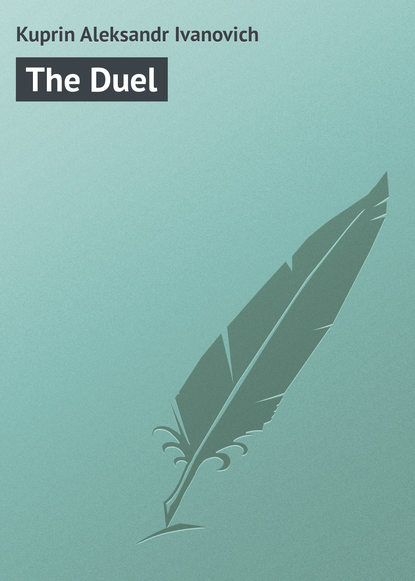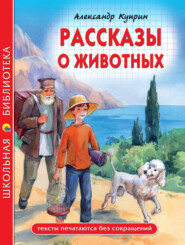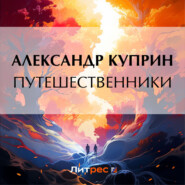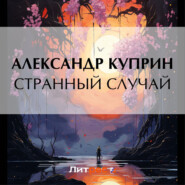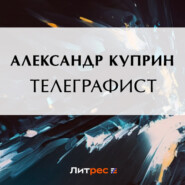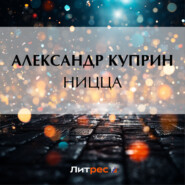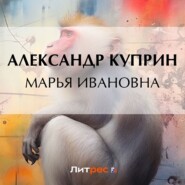По всем вопросам обращайтесь на: info@litportal.ru
(©) 2003-2024.
✖
The Duel
Настройки чтения
Размер шрифта
Высота строк
Поля
Precisely at ten minutes to 10 a.m., the 5th Company marched out of camp. With brisk, long, measured steps, that made the earth tremble, these hundred men marched past all the other companies and took their place in the line. They formed a splendid, select corps; lithe, muscular figures with straight backs and brave bearing, clean, shining faces, and the little peakless cap tipped coquettishly over the right ear. Captain Stelikovski – a little thin man, displaying himself in tremendously wide breeches – carelessly promenaded, without troubling himself in the least about the time his troops kept when marching, five paces on the side of the right flank, peering amusedly, and now and then shaking his head whimsically now to the right, now to the left, as though to control the troops’ “dressing” and attention. Colonel Liech, the commander of the battalion, who, like the rest of the officers, had been, ever since dawn, in a state of examination-fever and nervous irritability, rushed up to Stelikovski with furious upbraidings for having “come too late.” The latter slowly and coolly took out his watch, glanced at it, and replied in a dry, almost contemptuous tone:
“The commander of the regiment ordered me to be here by ten o’clock. It still wants three minutes to that hour. I do not consider I am justified in worrying and exerting my men unnecessarily.”
“Don’t, if you please,” croaked Liech, gesticulating and pulling his reins. “I must ask you to be silent when your superior officer makes a remark.”
But he only too well understood that he was wrong and would get the worst of it, and he rode quickly on, and visited his wrath on the 8th Company, whose officers had ordered the knapsacks to be opened.
“What the deuce are you about? What is this foolery? Are you thinking of opening a bazaar or a general shop? This is just like beginning a hunt by cramming the hounds with food. Close your knapsacks and put them on quickly. You ought to have thought of this before.”
At a quarter to eleven they began dressing the companies on the lines laid down. This was for all a very minute, tedious, and troublesome task. Between the échelons long ropes were tightly stretched along the ground. Every soldier in the front rank was obliged to see, with the most painful accuracy, that his toes just grazed the tightly-stretched rope, for in that lay the fundamental condition of the faultless dressing of the long front. Moreover, the distance between the toes, like the breadth of the gun-stock and the somewhat inclined position of the upper part of the body, had to be the same along the whole line. While anxiously superintending these details the Captains often flew into a towering rage. Frantic shouts and angry words of command were heard everywhere: “Ivanoff, more forward, you – Syaroschtan, right shoulder forward, left back!”
At 10.30 a.m. the commander of the regiment arrived. He rode on a powerful chestnut-brown gelding with white legs. Colonel Shulgovich was an imposing, almost majestic, figure on horseback. He had a firm “seat,” although he rode in infantry style, with stirrups far too short. In greeting his regiment he yelled in his tremendous voice, in which a certain jubilant heroic note in honour of the occasion was audible —
“Good morning, my fine fellows.”
Romashov, who remembered his 4th platoon and especially Kliabnikov’s wretched appearance, could not refrain from smiling. “Pretty choice specimens, in all truth,” thought he.
The standards were unfurled amidst the strident notes of the regimental band. After this came a long and trying moment. Straight away to the station, from which the Brigadier-General was expected, were posted a number of signallers who, by certain arranged signs, were to prepare the regiment for the approach of the Generals. More than once they were disturbed by a false alarm. The loose, slack ropes were once more tightened in mad haste, “dressings” and “lines” were ordered, and all stood for several minutes at the most painful “attention,” until weariness once more asserted its claims, and the poor soldiers collapsed, yet, at the very last, striving to keep the position of their feet, at any rate, unmoved. Out in the plain, about three hundred paces off, the ladies displayed their clothes, parasols, and hats of variegated and loud colours. Romashov knew very well that Shurochka was not in that bright, festive group. But every time he glanced in that direction he felt, as it were, an icy-cold shudder in the region of his heart, and his quick, nervous breathing bore witness to a strong inward excitement.
Suddenly, like a strong gust of wind, a rumour ran through the ranks, and a timorous cry was heard: “He’s coming; he’s coming!” It was clear to all that the important, eventful moment was approaching. The soldiers, who had been since dawn the victims of the prevailing excitement, dressed in their ranks without orders, but with a certain nervous haste, and became rigid in apparently lifeless immobility. Now and then a nervous coughing was heard.
“Ranks, attention!” rang out Shulgovich’s order.
Romashov, glancing to the right, discovered, at a good distance down the plain, a small but dense group of horsemen who, now and then obscured for an instant by a faint yellow cloud of dust, were rapidly approaching the front. Shulgovich rode, with a severe and solemn countenance, from his place in front of the middle company, right out into the plain, most certainly a good fourth further than the regulations demanded. The tremendous importance of the moment was reflected in his features. With a gesture of noble dignity, he first glanced upwards, then calmed the dark, motionless mass of soldiers by a glance, withering, it is true, but mingled with tremulous exultation, and then let his stentorian voice roll over the plain, when commanding —
“Attention! Should – er – ”
He purposely kept back the last syllable of that longest word of command – the so-called “effective” word, just as if an infinite power and sanctity lay hidden in the pronunciation of those few wretched letters. His countenance became a bluish-red, the veins in his neck were strained like thick cords, and, finally, the releasing word was discernible in the wild-beast-like roar —
“ – arms!”
One – two. A thousand slamming and rattling of hard blows from soldiers’ fists on the stocks of their rifles, and the violent contact of locks with the coarse metal clasps of belts echoed through the air. At the same moment the electrifying strains of the regimental march were audible from the right wing. Like wild, excited, undisciplined children let loose, the flutes and cornets ran riot, trying by their shrill, ear-piercing voices to drown the coarse bellowing of trombones and ophicleides, whilst the thunder of drums and kettledrums, warning and threatening, exhorted frivolous, thoughtless young men of the consideration due to the seriousness and supreme importance of the moment. From the station there rang out, almost like a soothing piccolo-strain, the whistle of the engine, mingling harmoniously with the joyful music of the band.
Romashov suddenly felt himself caught, as it were, by a mighty, roaring wave that, irresistibly and exultingly, carried him away. With a sensation of joy and courage such as he had never experienced before, his glance met the sun’s gold-steeped rays, and it seemed to him as if, at that moment, he was, for the first time, conscious of the blue sky paled by the heat, and the warm verdure of the plain that disappeared in the far distance. For once he felt young and strong and eager to distinguish himself; proud, too, of belonging to this magnificent, motionless, imposing mass of men, gathered together and quelled by an invisible, mysterious will.
Shulgovich, with his sabre drawn to a level with his face, rode in a ponderous gallop to meet the General.
Directly the band’s rough martial, triumphant strains had ceased, the General’s calm, musical voice rang out —
“Good-day, 1st Company.”
The soldiers answered his salutation promptly and joyfully. Again the locomotive made its voice heard, but this time in the form of a sharp, defiant signal. The Brigadier-General rode slowly along the line, saluting the companies in their proper order. Romashov could already distinguish his heavy, obese figure with the thin linen jacket turned up in deep folds across his chest and fat belly; his big square face turned towards the troops; the gorgeous saddle-cloth with his monogram embroidered in bright colours, the majestic grey charger, the ivory rings on the martingale, and patent-leather riding boots.
“Good-day, 6th Company.”
The soldiers round Romashov replied with a shout that was pretty nearly destructive both to throats and ear-drums. The General sat his horse with the careless grace of an accomplished rider. His noble charger, with the gentle, steadfast glance from his handsome, though slightly bloodshot eyes, tugged hard at its bit, from which, now and then, a few white foam-drops fell to the ground, and careered gently on with short, quick, dancing steps.
“He’s grey about the temples, but his moustache is black – dyed, perhaps,” was Romashov’s reflection just then.
Through his gold-rimmed pince-nez the General answered with his dark, clever, youthful and satirically questioning eyes the soldiers’ glances directed at him. When he came up to Romashov he touched the peak of his cap with his hand. Romashov stood quite still, with every muscle strained in the most correct attitude of “attention,” and he clasped the hilt of his sabre with such a hard, crushing grip that it almost caused him pain. A shudder of infinite, enthusiastic devotion rushed through his whole being, and whilst looking fixedly at the General’s face, he thought to himself in his old naïve, childish way —
“The grey-haired old warrior’s glances noted with delight the young ensign’s slender, well-built figure.”
The General continued his slow ride along the front, saluting company after company. Behind him moved his suite – a promiscuous, resplendent group of staff officers, whose horses shone with profuse rubbing down and dressing. Romashov glanced at them, too, benevolently, but not one of them took the slightest notice of him. These spoilt favourites of fortune had long since had more than enough of parades, reviews, and the boundless enthusiasm of little, insignificant infantry officers, and Romashov felt in his heart a bitter, rebellious feeling at the thought that these superior people belonged to a world quite beyond his reach.
The band suddenly received a sign to stop playing. The General returned at a sharp trot to the right wing, and after him, in a long, variegated line, his mounted suite. Colonel Shulgovich galloped off to the 1st Company. Pulling his reins and throwing all his enormous body back in the saddle, he yelled in a hoarse and trembling voice —
“Captain Osadchi, advance company. Quick, march!”
Between the commander of the regiment and Captain Osadchi there was an incessant rivalry, during drill hours, to outdo each other in lung power, and not many seconds elapsed before the latter was heard to order in his mighty, rolling bass —
“Company, shoulder arms! Dress in the middle. Forward, march!” Osadchi had, with fearful sacrifice of time and labour, succeeded in introducing in his company a new kind of marching. This consisted in the soldiers raising their foot high in the air in very slow time, and afterwards putting it down on the ground with the greatest possible force. This wonderful and imposing manner of moving along the ground excited not only much interest, but also a certain envy among the other captains of companies.
But the 1st Company had hardly marched fifty paces before they heard the General’s angry and impatient voice exclaim —
“What the deuce is this? Halt with the company. Halt, halt! Come here to me, Captain. Tell me, sir, what in the name of goodness that is supposed to represent. Is it a funeral or a torch procession? Say. March in three-time. Listen, sir, we’re not living in the days of Nicholas, when a soldier served for twenty-five years. How many precious days have you wasted in practising this corps de ballet? Answer me.”
Osadchi stood gloomy, still and silent before his angry chief, with his drawn sabre pointing to the ground. The General was silent for an instant, and then resumed his harangue with an expression of sorrow and irony in his voice —
“By this sort of insanity you will soon succeed in extinguishing the last spark of life in your soldiers. Don’t you think so yourself? Oh, you luckless ghosts from Ivan the Cruel’s days! But enough of this. Allow me instead to ask you, Captain, the name of this young lad.”
“Ignati Mikhailovich, your Excellency,” replied Osadchi in the dry, sepulchral, regulation voice.
“Well and good. But what do you know about him? Is he a bachelor, or has he a wife and children? Perhaps he has some trouble at home? Or he is very poor? Answer me.”
“I can’t say, your Excellency? I have a hundred men under my command. It is hard to remember all about them.”
“Hard to remember, did you say?” repeated the General in a sad and serious voice. “Ah, gentlemen, gentlemen. You must certainly know what the Scripture says: ‘Do not destroy the soul,’ and what are you doing? That poor, grey, wretched creature standing there, may, perhaps, some day, in the hour of battle, protect you by his body, carry you on his shoulders out of a hail of bullets, may, with his ragged cloak, protect you against snow and frost, and yet you have nothing to say about him, but ‘I can’t say!’”
In his nervous excitement the General pulled in the reins and shouted over Osadchi’s head, in an angry voice, to the commander of the regiment —
“Colonel, get this company out of my way. I have had enough. Nothing but marionettes and blockheads.”
From that moment the fate of the regiment was sealed. The terrified soldiers’ absolute exhaustion, the non-coms.’ lunatical cruelty, the officers’ incapacity, indifference, and laziness – all this came out clearly as the review proceeded. In the 2nd Company the soldiers did not even know the Lord’s Prayer. In the 3rd, the officers ran like wild fowls when the company was to be drilled in “open order.” In the 4th, the manual exercise was below criticism, etc. The worst of all was, however, that none of the companies, with the exception of the 5th, knew how to meet a sudden charge of cavalry. Now, this was precisely the General’s hobby; he had published independently copious instructions on this, in which he pointed out minutely the vital importance of the troops’ mobility and quickness, and of their leader’s resolution and deliberation.
After each company had in turn been reviewed, the General commanded the officers, both commissioned and non-commissioned, to go out of ear-shot, after which he questioned the soldiers with regard to their wishes and grounds of complaint; but everywhere he met with the same good-humoured reply: “Satisfied with everything, your Excellency.” When that question was put to No. 1 Company, Romashov heard an ensign in it remark in a threatening voice —
“Just let me hear any one daring to complain; I’ll give him ‘complaints’!”
For the 5th Company only was the whole review a complete triumph. The brave, young, lusty soldiers executed all their movements with life and energy, and with such facility, mobility, and absence of all pedantry that the whole of the review seemed to officers and men, not a severe, painful examination, but like a jolly and amusing game. The General smiled his satisfaction, and soon could not refrain from a “Well done, my lads” – the first words of approval he uttered during the whole time.
When, however, the ominous pretended charge was to be met, Stelikovski literally took the old General by storm. The General himself started the exercise by suddenly shouting to the commander of the company: “Cavalry from the right, eight hundred paces.” Stelikovski formed, without a second’s hesitation and with the greatest calm and precision, his company to meet the supposed enemy, which seemed to approach at a furious gallop. With compactly closed ranks – the fore-rank in a kneeling position – the troops fired two or three rounds, immediately after which was heard the fateful command: “Quick fire!”
“Thanks, my children,” cried the old General joyously – “that’s the way it should be done. Thanks, thanks.”
After the oral examination the company was drawn up in open file; but the General delayed his final dismissal. It was as if it seemed hard to him to say good-bye to this company. Passing as slowly as possible along the front, he observed every soldier with particular and deep interest, and a very delighted smile gleamed through the pince-nez from the clever eyes beneath the heavy, prominent eyebrows. Suddenly he stopped his charger, turned round on his saddle to the head of his staff, and exclaimed —
“No; come here and look, Colonel, what muzzles the rascals have. What do you feed them on, Captain? Pies? Hi, you thick nose” (he pointed to a young soldier in the ranks), “your name’s Kovál?”
“The commander of the regiment ordered me to be here by ten o’clock. It still wants three minutes to that hour. I do not consider I am justified in worrying and exerting my men unnecessarily.”
“Don’t, if you please,” croaked Liech, gesticulating and pulling his reins. “I must ask you to be silent when your superior officer makes a remark.”
But he only too well understood that he was wrong and would get the worst of it, and he rode quickly on, and visited his wrath on the 8th Company, whose officers had ordered the knapsacks to be opened.
“What the deuce are you about? What is this foolery? Are you thinking of opening a bazaar or a general shop? This is just like beginning a hunt by cramming the hounds with food. Close your knapsacks and put them on quickly. You ought to have thought of this before.”
At a quarter to eleven they began dressing the companies on the lines laid down. This was for all a very minute, tedious, and troublesome task. Between the échelons long ropes were tightly stretched along the ground. Every soldier in the front rank was obliged to see, with the most painful accuracy, that his toes just grazed the tightly-stretched rope, for in that lay the fundamental condition of the faultless dressing of the long front. Moreover, the distance between the toes, like the breadth of the gun-stock and the somewhat inclined position of the upper part of the body, had to be the same along the whole line. While anxiously superintending these details the Captains often flew into a towering rage. Frantic shouts and angry words of command were heard everywhere: “Ivanoff, more forward, you – Syaroschtan, right shoulder forward, left back!”
At 10.30 a.m. the commander of the regiment arrived. He rode on a powerful chestnut-brown gelding with white legs. Colonel Shulgovich was an imposing, almost majestic, figure on horseback. He had a firm “seat,” although he rode in infantry style, with stirrups far too short. In greeting his regiment he yelled in his tremendous voice, in which a certain jubilant heroic note in honour of the occasion was audible —
“Good morning, my fine fellows.”
Romashov, who remembered his 4th platoon and especially Kliabnikov’s wretched appearance, could not refrain from smiling. “Pretty choice specimens, in all truth,” thought he.
The standards were unfurled amidst the strident notes of the regimental band. After this came a long and trying moment. Straight away to the station, from which the Brigadier-General was expected, were posted a number of signallers who, by certain arranged signs, were to prepare the regiment for the approach of the Generals. More than once they were disturbed by a false alarm. The loose, slack ropes were once more tightened in mad haste, “dressings” and “lines” were ordered, and all stood for several minutes at the most painful “attention,” until weariness once more asserted its claims, and the poor soldiers collapsed, yet, at the very last, striving to keep the position of their feet, at any rate, unmoved. Out in the plain, about three hundred paces off, the ladies displayed their clothes, parasols, and hats of variegated and loud colours. Romashov knew very well that Shurochka was not in that bright, festive group. But every time he glanced in that direction he felt, as it were, an icy-cold shudder in the region of his heart, and his quick, nervous breathing bore witness to a strong inward excitement.
Suddenly, like a strong gust of wind, a rumour ran through the ranks, and a timorous cry was heard: “He’s coming; he’s coming!” It was clear to all that the important, eventful moment was approaching. The soldiers, who had been since dawn the victims of the prevailing excitement, dressed in their ranks without orders, but with a certain nervous haste, and became rigid in apparently lifeless immobility. Now and then a nervous coughing was heard.
“Ranks, attention!” rang out Shulgovich’s order.
Romashov, glancing to the right, discovered, at a good distance down the plain, a small but dense group of horsemen who, now and then obscured for an instant by a faint yellow cloud of dust, were rapidly approaching the front. Shulgovich rode, with a severe and solemn countenance, from his place in front of the middle company, right out into the plain, most certainly a good fourth further than the regulations demanded. The tremendous importance of the moment was reflected in his features. With a gesture of noble dignity, he first glanced upwards, then calmed the dark, motionless mass of soldiers by a glance, withering, it is true, but mingled with tremulous exultation, and then let his stentorian voice roll over the plain, when commanding —
“Attention! Should – er – ”
He purposely kept back the last syllable of that longest word of command – the so-called “effective” word, just as if an infinite power and sanctity lay hidden in the pronunciation of those few wretched letters. His countenance became a bluish-red, the veins in his neck were strained like thick cords, and, finally, the releasing word was discernible in the wild-beast-like roar —
“ – arms!”
One – two. A thousand slamming and rattling of hard blows from soldiers’ fists on the stocks of their rifles, and the violent contact of locks with the coarse metal clasps of belts echoed through the air. At the same moment the electrifying strains of the regimental march were audible from the right wing. Like wild, excited, undisciplined children let loose, the flutes and cornets ran riot, trying by their shrill, ear-piercing voices to drown the coarse bellowing of trombones and ophicleides, whilst the thunder of drums and kettledrums, warning and threatening, exhorted frivolous, thoughtless young men of the consideration due to the seriousness and supreme importance of the moment. From the station there rang out, almost like a soothing piccolo-strain, the whistle of the engine, mingling harmoniously with the joyful music of the band.
Romashov suddenly felt himself caught, as it were, by a mighty, roaring wave that, irresistibly and exultingly, carried him away. With a sensation of joy and courage such as he had never experienced before, his glance met the sun’s gold-steeped rays, and it seemed to him as if, at that moment, he was, for the first time, conscious of the blue sky paled by the heat, and the warm verdure of the plain that disappeared in the far distance. For once he felt young and strong and eager to distinguish himself; proud, too, of belonging to this magnificent, motionless, imposing mass of men, gathered together and quelled by an invisible, mysterious will.
Shulgovich, with his sabre drawn to a level with his face, rode in a ponderous gallop to meet the General.
Directly the band’s rough martial, triumphant strains had ceased, the General’s calm, musical voice rang out —
“Good-day, 1st Company.”
The soldiers answered his salutation promptly and joyfully. Again the locomotive made its voice heard, but this time in the form of a sharp, defiant signal. The Brigadier-General rode slowly along the line, saluting the companies in their proper order. Romashov could already distinguish his heavy, obese figure with the thin linen jacket turned up in deep folds across his chest and fat belly; his big square face turned towards the troops; the gorgeous saddle-cloth with his monogram embroidered in bright colours, the majestic grey charger, the ivory rings on the martingale, and patent-leather riding boots.
“Good-day, 6th Company.”
The soldiers round Romashov replied with a shout that was pretty nearly destructive both to throats and ear-drums. The General sat his horse with the careless grace of an accomplished rider. His noble charger, with the gentle, steadfast glance from his handsome, though slightly bloodshot eyes, tugged hard at its bit, from which, now and then, a few white foam-drops fell to the ground, and careered gently on with short, quick, dancing steps.
“He’s grey about the temples, but his moustache is black – dyed, perhaps,” was Romashov’s reflection just then.
Through his gold-rimmed pince-nez the General answered with his dark, clever, youthful and satirically questioning eyes the soldiers’ glances directed at him. When he came up to Romashov he touched the peak of his cap with his hand. Romashov stood quite still, with every muscle strained in the most correct attitude of “attention,” and he clasped the hilt of his sabre with such a hard, crushing grip that it almost caused him pain. A shudder of infinite, enthusiastic devotion rushed through his whole being, and whilst looking fixedly at the General’s face, he thought to himself in his old naïve, childish way —
“The grey-haired old warrior’s glances noted with delight the young ensign’s slender, well-built figure.”
The General continued his slow ride along the front, saluting company after company. Behind him moved his suite – a promiscuous, resplendent group of staff officers, whose horses shone with profuse rubbing down and dressing. Romashov glanced at them, too, benevolently, but not one of them took the slightest notice of him. These spoilt favourites of fortune had long since had more than enough of parades, reviews, and the boundless enthusiasm of little, insignificant infantry officers, and Romashov felt in his heart a bitter, rebellious feeling at the thought that these superior people belonged to a world quite beyond his reach.
The band suddenly received a sign to stop playing. The General returned at a sharp trot to the right wing, and after him, in a long, variegated line, his mounted suite. Colonel Shulgovich galloped off to the 1st Company. Pulling his reins and throwing all his enormous body back in the saddle, he yelled in a hoarse and trembling voice —
“Captain Osadchi, advance company. Quick, march!”
Between the commander of the regiment and Captain Osadchi there was an incessant rivalry, during drill hours, to outdo each other in lung power, and not many seconds elapsed before the latter was heard to order in his mighty, rolling bass —
“Company, shoulder arms! Dress in the middle. Forward, march!” Osadchi had, with fearful sacrifice of time and labour, succeeded in introducing in his company a new kind of marching. This consisted in the soldiers raising their foot high in the air in very slow time, and afterwards putting it down on the ground with the greatest possible force. This wonderful and imposing manner of moving along the ground excited not only much interest, but also a certain envy among the other captains of companies.
But the 1st Company had hardly marched fifty paces before they heard the General’s angry and impatient voice exclaim —
“What the deuce is this? Halt with the company. Halt, halt! Come here to me, Captain. Tell me, sir, what in the name of goodness that is supposed to represent. Is it a funeral or a torch procession? Say. March in three-time. Listen, sir, we’re not living in the days of Nicholas, when a soldier served for twenty-five years. How many precious days have you wasted in practising this corps de ballet? Answer me.”
Osadchi stood gloomy, still and silent before his angry chief, with his drawn sabre pointing to the ground. The General was silent for an instant, and then resumed his harangue with an expression of sorrow and irony in his voice —
“By this sort of insanity you will soon succeed in extinguishing the last spark of life in your soldiers. Don’t you think so yourself? Oh, you luckless ghosts from Ivan the Cruel’s days! But enough of this. Allow me instead to ask you, Captain, the name of this young lad.”
“Ignati Mikhailovich, your Excellency,” replied Osadchi in the dry, sepulchral, regulation voice.
“Well and good. But what do you know about him? Is he a bachelor, or has he a wife and children? Perhaps he has some trouble at home? Or he is very poor? Answer me.”
“I can’t say, your Excellency? I have a hundred men under my command. It is hard to remember all about them.”
“Hard to remember, did you say?” repeated the General in a sad and serious voice. “Ah, gentlemen, gentlemen. You must certainly know what the Scripture says: ‘Do not destroy the soul,’ and what are you doing? That poor, grey, wretched creature standing there, may, perhaps, some day, in the hour of battle, protect you by his body, carry you on his shoulders out of a hail of bullets, may, with his ragged cloak, protect you against snow and frost, and yet you have nothing to say about him, but ‘I can’t say!’”
In his nervous excitement the General pulled in the reins and shouted over Osadchi’s head, in an angry voice, to the commander of the regiment —
“Colonel, get this company out of my way. I have had enough. Nothing but marionettes and blockheads.”
From that moment the fate of the regiment was sealed. The terrified soldiers’ absolute exhaustion, the non-coms.’ lunatical cruelty, the officers’ incapacity, indifference, and laziness – all this came out clearly as the review proceeded. In the 2nd Company the soldiers did not even know the Lord’s Prayer. In the 3rd, the officers ran like wild fowls when the company was to be drilled in “open order.” In the 4th, the manual exercise was below criticism, etc. The worst of all was, however, that none of the companies, with the exception of the 5th, knew how to meet a sudden charge of cavalry. Now, this was precisely the General’s hobby; he had published independently copious instructions on this, in which he pointed out minutely the vital importance of the troops’ mobility and quickness, and of their leader’s resolution and deliberation.
After each company had in turn been reviewed, the General commanded the officers, both commissioned and non-commissioned, to go out of ear-shot, after which he questioned the soldiers with regard to their wishes and grounds of complaint; but everywhere he met with the same good-humoured reply: “Satisfied with everything, your Excellency.” When that question was put to No. 1 Company, Romashov heard an ensign in it remark in a threatening voice —
“Just let me hear any one daring to complain; I’ll give him ‘complaints’!”
For the 5th Company only was the whole review a complete triumph. The brave, young, lusty soldiers executed all their movements with life and energy, and with such facility, mobility, and absence of all pedantry that the whole of the review seemed to officers and men, not a severe, painful examination, but like a jolly and amusing game. The General smiled his satisfaction, and soon could not refrain from a “Well done, my lads” – the first words of approval he uttered during the whole time.
When, however, the ominous pretended charge was to be met, Stelikovski literally took the old General by storm. The General himself started the exercise by suddenly shouting to the commander of the company: “Cavalry from the right, eight hundred paces.” Stelikovski formed, without a second’s hesitation and with the greatest calm and precision, his company to meet the supposed enemy, which seemed to approach at a furious gallop. With compactly closed ranks – the fore-rank in a kneeling position – the troops fired two or three rounds, immediately after which was heard the fateful command: “Quick fire!”
“Thanks, my children,” cried the old General joyously – “that’s the way it should be done. Thanks, thanks.”
After the oral examination the company was drawn up in open file; but the General delayed his final dismissal. It was as if it seemed hard to him to say good-bye to this company. Passing as slowly as possible along the front, he observed every soldier with particular and deep interest, and a very delighted smile gleamed through the pince-nez from the clever eyes beneath the heavy, prominent eyebrows. Suddenly he stopped his charger, turned round on his saddle to the head of his staff, and exclaimed —
“No; come here and look, Colonel, what muzzles the rascals have. What do you feed them on, Captain? Pies? Hi, you thick nose” (he pointed to a young soldier in the ranks), “your name’s Kovál?”





